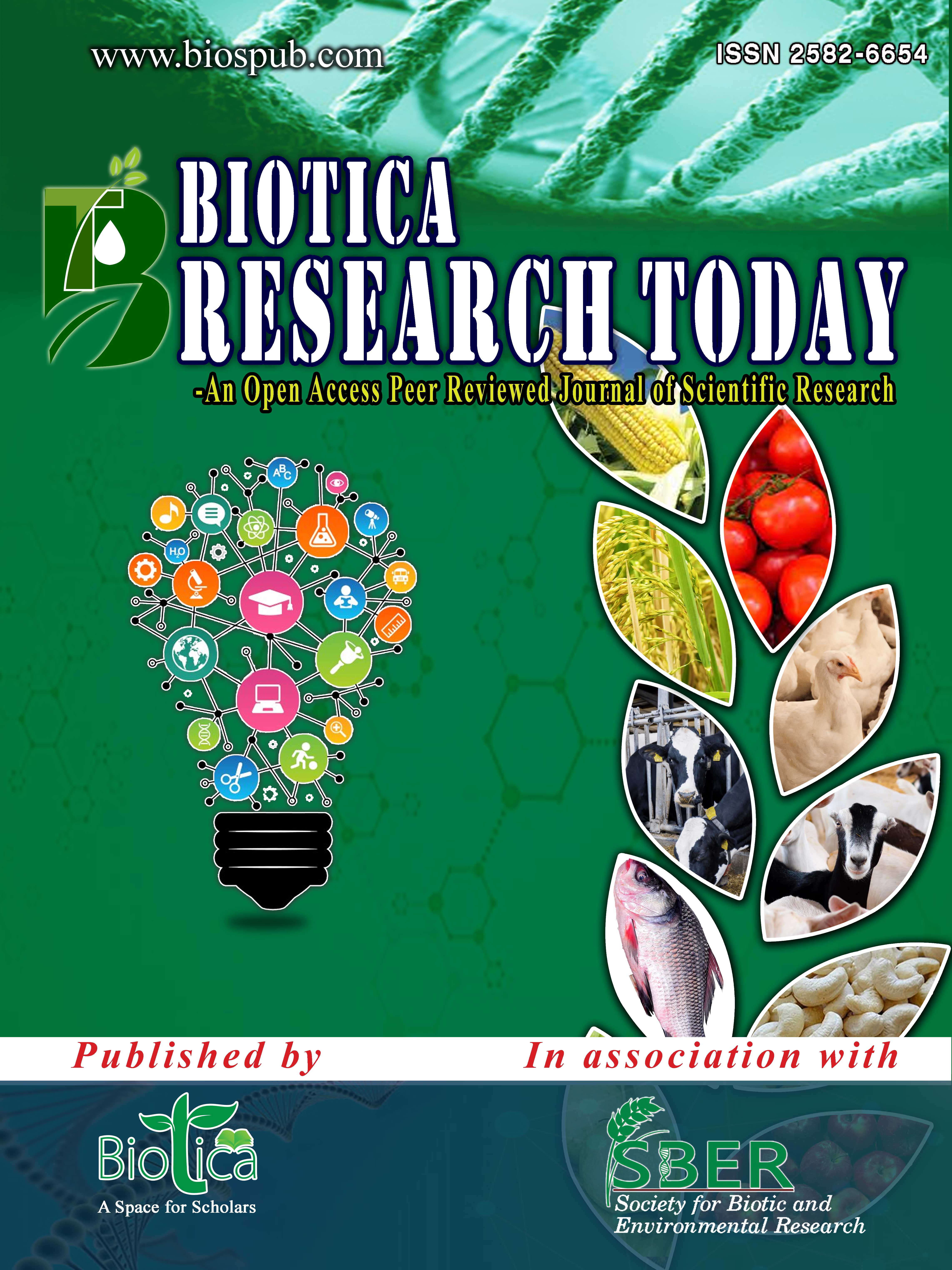Biowaste Utilisation for Improving Soil Health and Crop Productivity in North Eastern India
DOI:
https://doi.org/10.54083/ResBio.2.2.2020.44-49Keywords:
Acid soil, Bio-waste, Climate change, Crop residue, Organic manure, Soil healthAbstract
Efficient utilisation of bio-wastes could be an important strategy for meeting the growing demand of nutrients and improving the soil health and crop productivity in north-eastern India, where there is abundant availability of bio-wastes (such as crop residues, weed biomass, forest litter, animal dung etc.), and use of chemical fertilisers is traditionally minimal. Production of weed biomass in north-eastern India is estimated to be in the range of 5-20 t/ha. Around 9 Mt of crop residues are produced annually in the region. Considering even half of these residues to be available and 40% loss of nutrients contained therein, the potentially available crop residues can add up to 10,000 tonnes of N, 2,000 tonnes of P2O5 and 35,000 tonnes of K2O to soil. Around 15 Mt of animals’ dung produced annually can also supply substantial amount of nutrients. Additionally, these bio-wastes can improve soil organic carbon, moisture retention capacity, buffering capacity and many other desirable attributes of soil quality. These bio-wastes can also be utilised for production of quality organic manure in a short period of 50-80 days using earthworms and cellulose decomposing microorganisms, either alone or in combination. On the whole, efficient utilisation of the available bio-wastes has great potential to improve the soil health and crop productivity, and therefore needs to be promoted on priority basis. This will also help in mitigating the likely impacts of climate change on soil health and crop productivity in north eastern India.
Downloads
Downloads
Published
How to Cite
Issue
Section
Categories
License
Submission of a manuscript implies that when the manuscript is accepted for publication, the authors agree to automatic transfer of the copyright to the publisher (or grant the Publisher exclusive publication and dissemination rights). The Biotica, as the publisher, has the right to enter into any agreement with any organization in India or abroad engaged in reprography, photocopying, storage and dissemination of information contained in this journal. The Biotica has no objection in using the material, provided the information is being utilized for academic purpose but not for commercial use. Due credit line should be given to Biotica where information will be utilized.









 |
|


